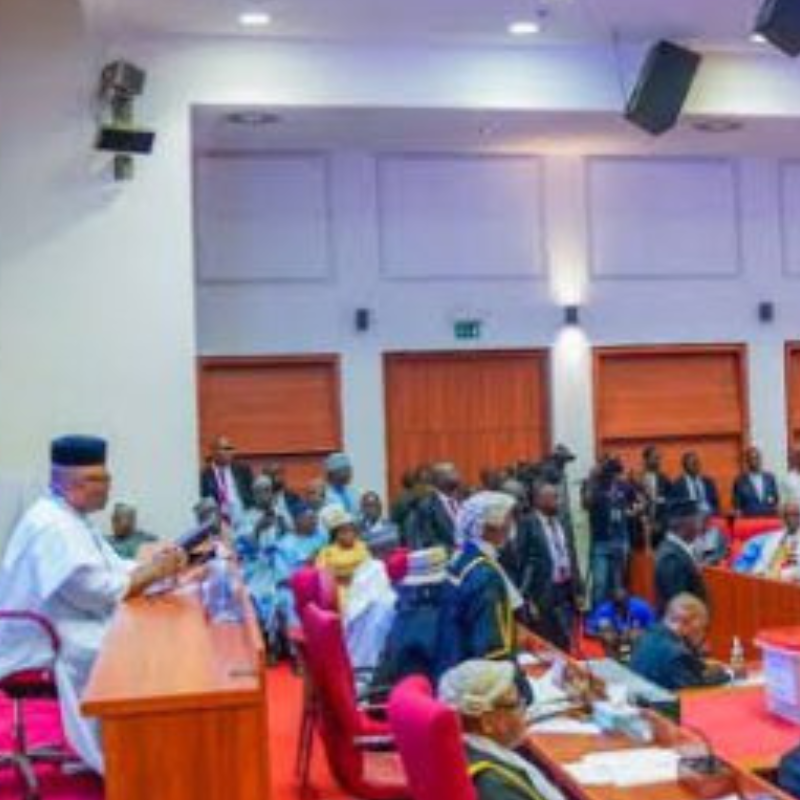Akpabio warned that ignoring legislative directives undermines the National Assembly’s authority and disrespects the will of the Nigerian people.

The President of the Senate, Godswill Akpabio, has issued a strong warning to Ministries, Departments, and Agencies (MDAs) of the federal government, stressing that compliance with senate resolutions is mandatory and not subject to discretion.
Akpabio gave this warning while speaking at a national workshop organised by the Senate Committee on Legislative Compliance in Abuja on Tuesday with it’s theme “consolidating strategies for strengthening legislative compliance by MDAs.”
Akpabio, represented by Senate Minority Whip, Sen. Osita Ngwu emphasised that adherence to legislative resolutions is a constitutional duty owed by all branches and levels of government to the Nigerian people.
He said, ”Let me state emphatically, compliance with legislative resolutions is not optional. It is absolutely fundamental.
“Our laws, policies, and oversight functions are meant to guide the execution of government programmes in a manner that ensures transparency, equity, and effectiveness.”
He warned that failure to comply with legislative directives not only weakens the authority of the National Assembly but also disregards the collective mandate of the Nigerian populace.
“When departments and agencies fail to comply with legislative directives, they undermine not just the authority of the legislature but the collective will of the Nigerian people, whom we all represent,” he said.
Akpabio further called for stronger collaboration between public institutions and the legislature to foster an equitable society.
“When public institutions ignore legislative resolutions, when compliance becomes selective, and when oversight is treated with disdain, the result is a breakdown in trust,” he added.
READ ALSO: LEGISLATIVE COMPLIANCE: Are public officials arresting accountability?
Also speaking at the event, Sen. Ede Dafinone (APC, Delta central) condemned the growing trend of MDAs ignoring or delaying action on senate resolutions.
“In recent times, we have witnessed several instances where MDAs and public institutions have either delayed or outrightly disregarded legislative resolutions passed by the senate.
“These actions not only undermine the authority of the legislature but also weaken the very foundation of our democratic institutions,” he said.
He noted that the workshop aimed to identify and address root causes of non-compliance, including legal ambiguities, institutional conflicts, capacity deficits, and bureaucratic bottlenecks.
The ultimate goal, he said, is to develop actionable and enforceable strategies that close the gap between legislation and implementation.
He urged MDAs to collectively work towards bridging the gap between legislation and execution for good governance, institutional effectiveness, and the benefit of the Nigerian people.




